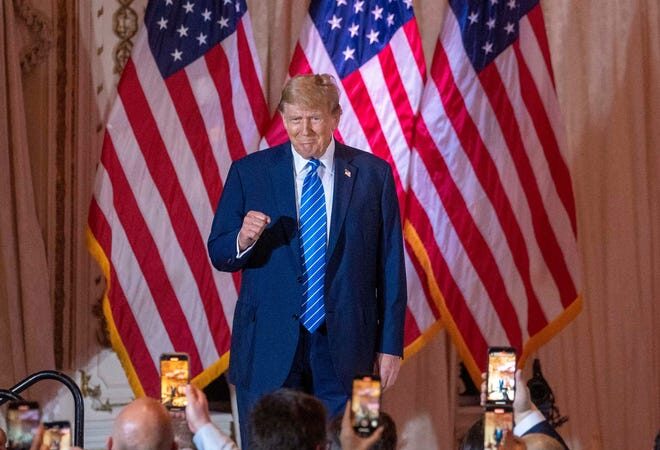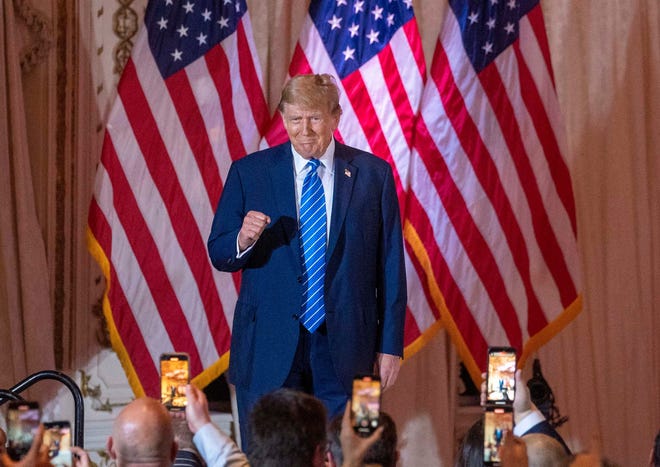
A New York prosecutor asked Thursday to postpone by 30 days Donald Trump’s trial on charges of falsifying financial records to pay hush money to women so the former president can study new evidence in the case.
Judge Juan Merchan had set the first-ever criminal trial of a former president to begin March 25.
But Trump’s lawyers asked for a 90-day delay while they study 73,000 pages of new evidence recieved from federal prosecutors on March 4 and another 31,000 pages received Wednesday. More records are expected next week.
Manhattan District Attorney Alvin Bragg said he was prepared to start the trial on time, but out of “an abundance of caution” was willing to delay by 30 days “to ensure that defendant has sufficient time to review the new materials.”
Merchan hasn’t ruled on the requested delays yet.
Prep for the polls: See who is running for president and compare where they stand on key issues in our Voter Guide

Bragg also blamed the delay, which appears at least partially related to expected witness Michael Cohen, on Trump.
Bragg said he had sought the full grand jury record related to Cohen’s 2018 federal conviction on campaign finance violations last June and was satisfied with the results. But Trump waited until Jan. 18 to subpoena the U.S. Attorney’s office for the records and raised no concerns about the Cohen evidence until last week.
“The timing of the USAO’s productions is a result solely of defendant’s delay despite the People’s diligence,” Bragg wrote. Cohen was convicted of campaign finance violations based on the hush money payments, along with tax fraud, bank fraud and lying to Congress.
Trump has pleaded not guilty to 34 counts of falsifying business records in New York. Bragg has argued that Trump falsified the records to disguise reimbursements he made to Cohen for hush-money payments to Stormy Daniels, a pornographic film actress, and Karen McDougal, a former Playboy model, before the 2016 election, to stop them from airing allegations they’d had sex with Trump.
Cohen is considered a key witness in the case because of his role in making the payments. But he has also been convicted and spent time in prison over those same payments, and for lying to Congress. Trump has argued he is unreliable.






